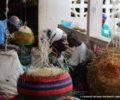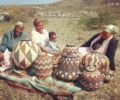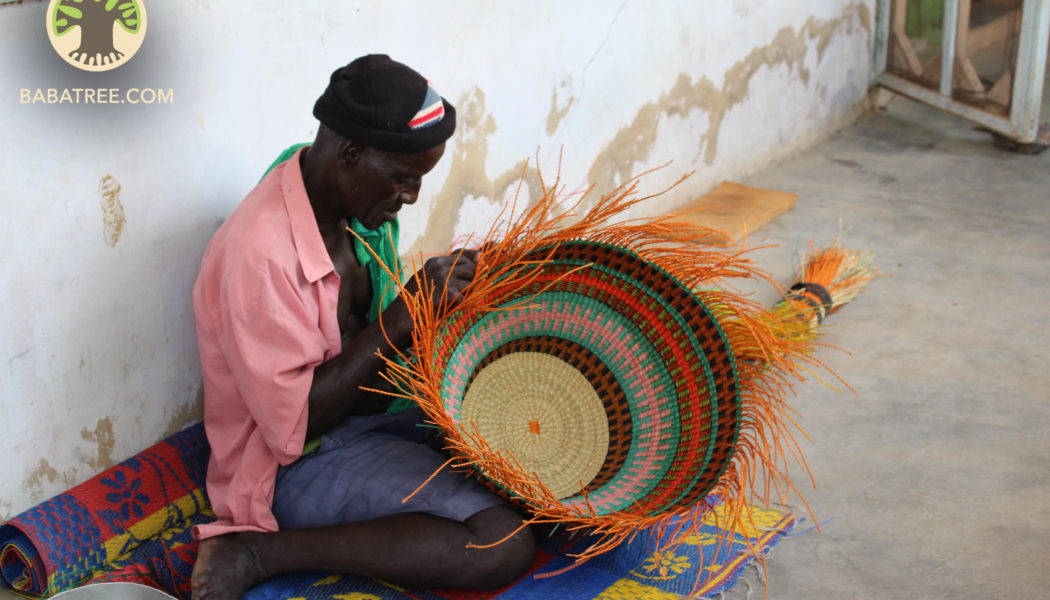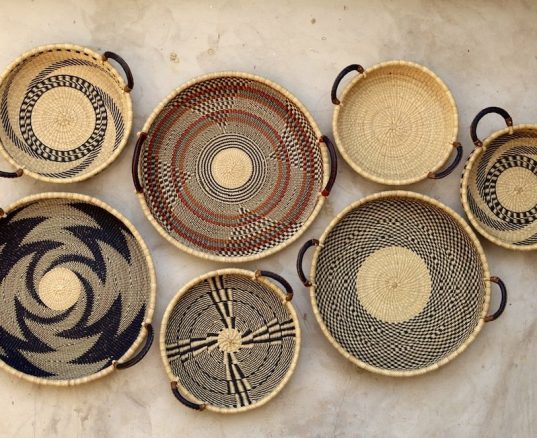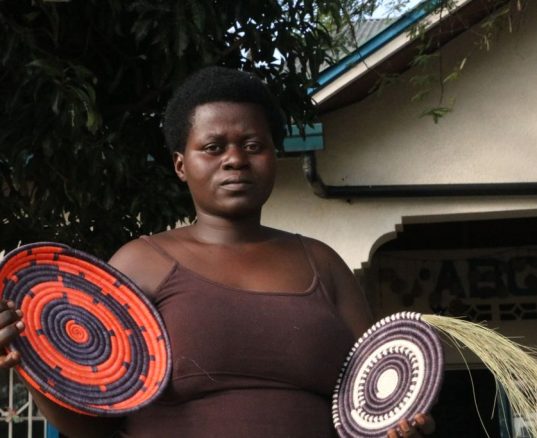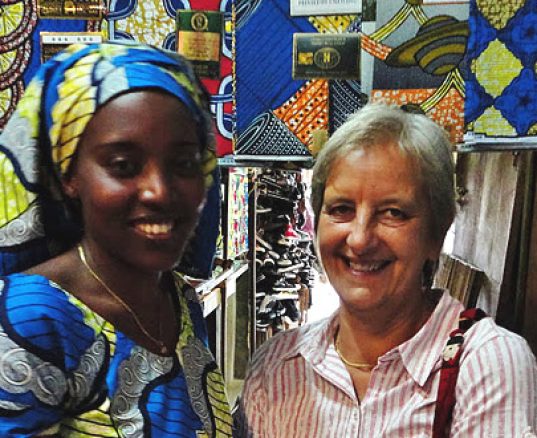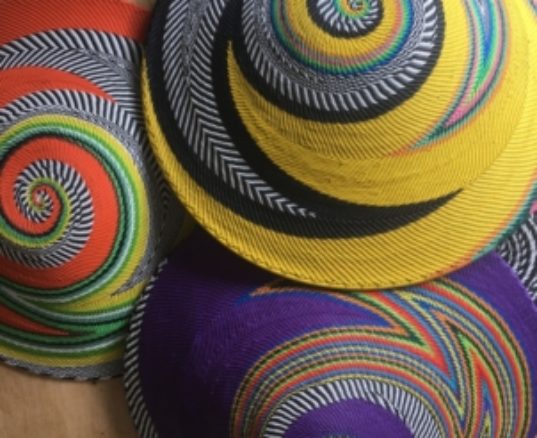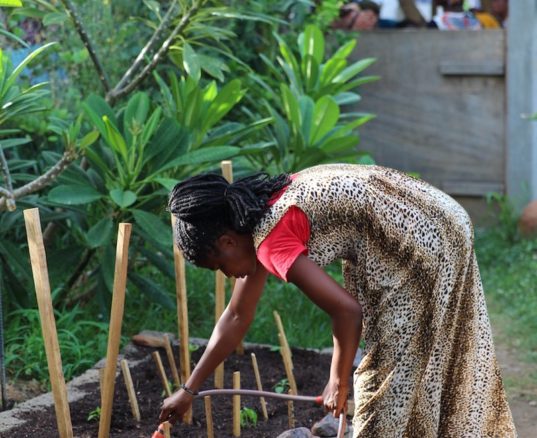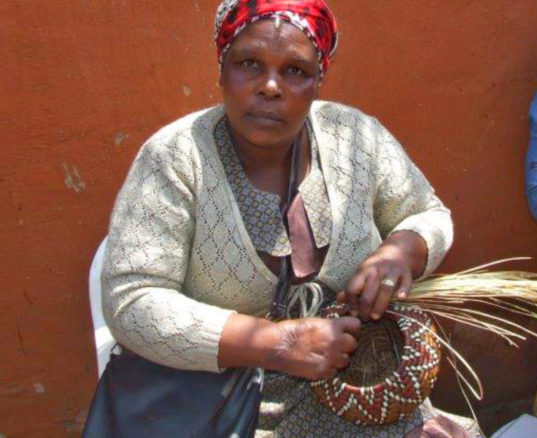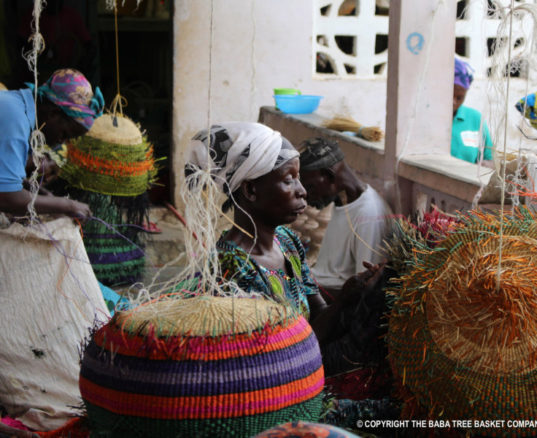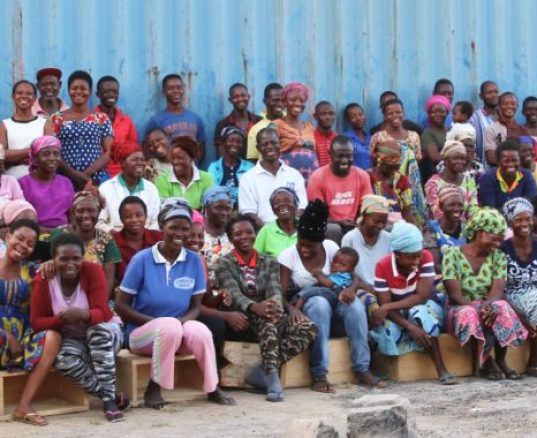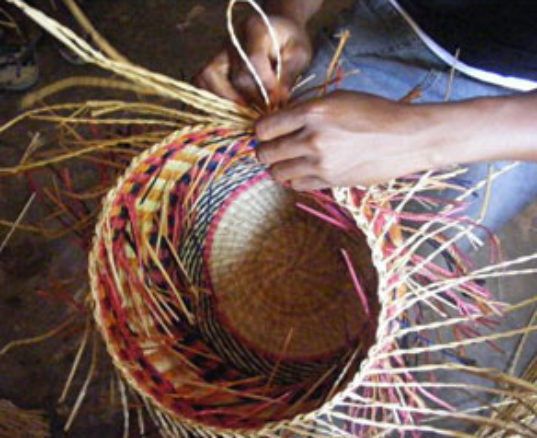The Bolga basket evolved out of woven instruments for farming, particularly sieves, which were perfectly round and without handles. Sieves were woven to brew the local alcohol, Pito. Pito was, and still is, a ceremonial alcoholic drink brewed from millet and guinea corn (sorghum) and drunk from shared calabashes at marriage ceremonies, funerals, festivals, and baby naming ceremonies. The original woven sieves and fish traps evolved over centuries into baskets and larger carrying vessels with handles.
To supplement their incomes, the Frafra people, the main ethnic group from Bolgatanga, undertake basket making. Over centuries, weavers from Bolga have passed down traditional weaving skills to subsequent generations, including the youth of today. This sophisticated form of basket making is unique to this corner of Ghana and across West Africa.
Fortunately, basket making skills are widespread. Children learn the basics of splitting grass with their teeth and rolling it on their legs to twist it in preparation for weaving beside their mothers. They might start practicing on small baskets when they’re young so that, by the time, they’re adults, they’ve mastered basic basket making techniques.
Bolga baskets provide an opportunity to own a traditional piece of African craft work at a reasonable price and by doing so allow the tradition to continue. They are incredibly strong, virtually indestructible and may be sprayed and cleaned with water if soiled. The grass fibres are soft and densely woven. Bolgas are great for shopping, storing your stash, projects and other craftwork, toys, gardening, magazines and are uniquely beautiful as well as practical.
It is an absolute pleasure to sell these baskets as they put a smile on everyone’s face and more importantly provide an income in an impoverished area of Northern Ghana.

